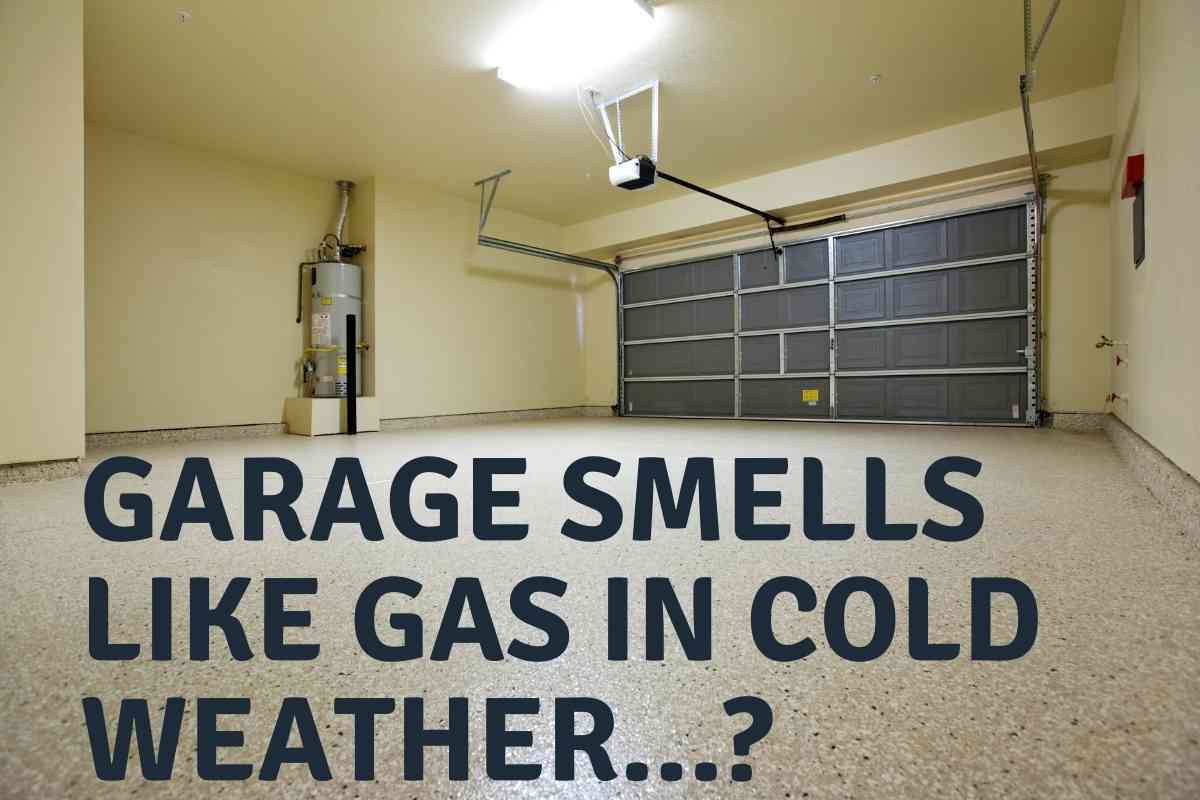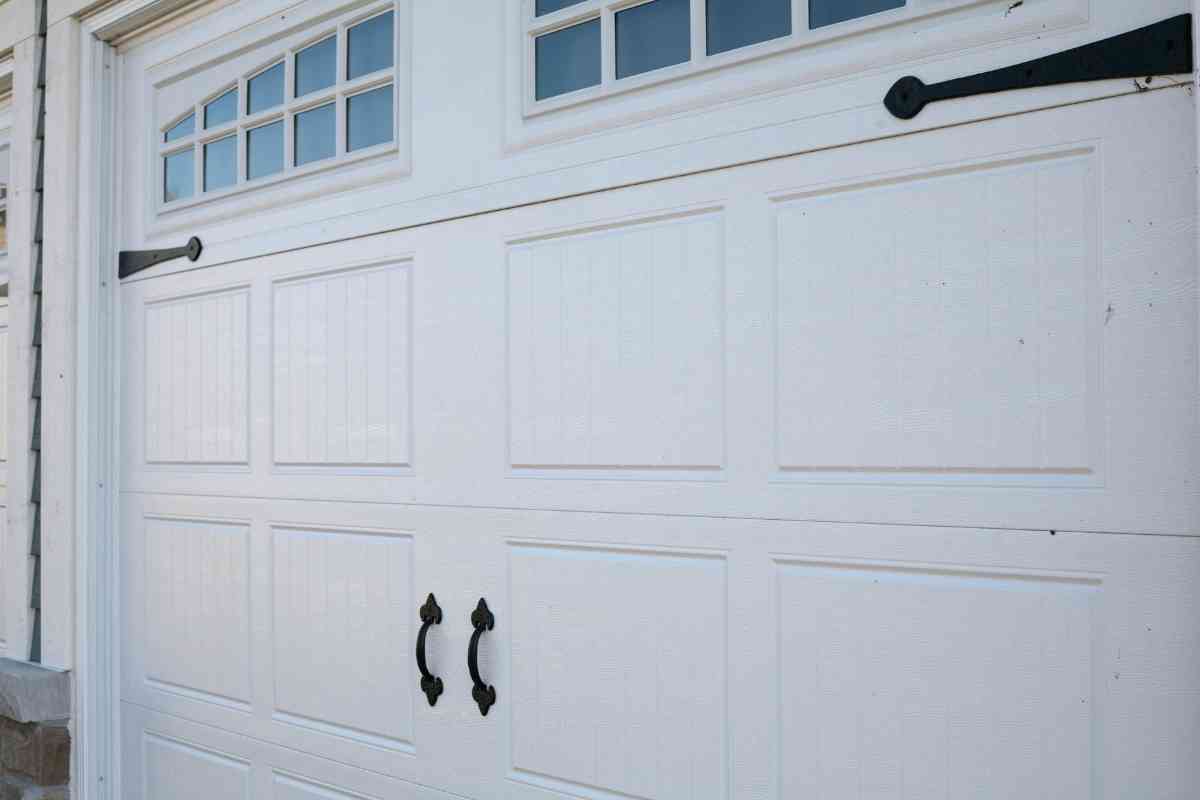Garage Smells Like Gas In Cold Weather: 6 Common Reasons
Few people enjoy the smell of gasoline, and it can be especially nauseating when trapped in a garage in the winter. Without the ability to freely air out the space, the smell can even start seeping into homes and cars! How do you find the culprit when this becomes a cold-weather issue? After all, running to the mechanic every time you smell gasoline can get expensive.

Why does my garage smell like gas when it’s cold outside?
These are six of the most common reasons that a garage might smell like gas in cold weather:
- You car is seeping gas
- Other gas-powered equipment is seeping gas
- Your snowblower or other equipment was recently refilled with gas
- A gas can was left open
- Gas was spilled
- The door is closed frequently, trapping the smell of gas
If nothing on this list helps your home, try calling in an expert to make sure no lines in your house are leaking. It’s always better to be safe than sorry!
1. A Car is Seeping Gas in Cold Weather
This is the most common answer, and the most urgent to figure out. Nobody wants their car to seep gas!
If your garage starts smelling like gasoline, you should always check the car first. You can do this without a mechanic! Get someone with a good sense of smell to help you, and start investigating.
You should start by giving it a general sniff. If you lean over and your car clearly smells like gas, your car is seeping gas.
If you don’t smell gas right away, investigate further. Try running your hand or a microfiber cloth across the fuel tank and fuel line to see if you feel any dampness, and see if that dampness smells like gas.
If you feel anything suspicious, or if the smell of gas is greater at any time while you investigate your car, take it to the mechanic and explain exactly what is going on.
They might not be able to smell or feel anything once your car is warmed up, but they can check for loose valves.
Since gasoline is a flammable substance, and your garage is not the safest place to work with flammable substances, this is something that is probably best for your mechanic to fix.
Why Would This Be a Problem?
It isn’t uncommon for a car to have fuel line shrinkage issues in the cold! If you live in an especially cold place, there’s only so much your car can handle.
You might also have run into a cold-weather problem with ice chunks, debris, or potholes. If something clipped your gas tank or fuel line, making it seep gas, it’s best to find out about it sooner rather than later.
Additionally, some models of cars have a known issue with fuel seepage in the cold. You should look up your car model to see if that’s the case. If it is, you can report it to a dealership after getting it checked out by a mechanic.

2. Unused Landscaping Tools are Leaking Gas
Like a car, the fuel lines of your landscaping tools can suffer in cold weather. They can also seep gas when they’re left hanging or lying on their sides for long periods of time. Check them in a similar way to what was described for cars, including the sniff test, and see if you find the problem.
If you want to narrow down your options right away, you can put all of the landscaping tools outside overnight. If the smell of gas leaves your garage, you’ll know the culprit is probably the tools.
Wipe them off, bring them back inside, and give them all a thorough inspection one by one until you figure out what’s causing the smell.
3. A Snowblower was Recently Refilled
Anyone with a gas-powered snowblower can attest to the smell that lingers after they are refilled. It might sound silly, but ask your household if somebody was using or if they refilled the snowblower when you weren’t home.
If it still smells like gasoline a few hours after refilling, or if you see it leak gasoline, go through the same routine as your car.
It might have a loose valve, a leak in a line, or be overfilled. You don’t want to lose an expensive snowblower to a gas leak.
The reasons your snowblower might smell like gas after being refilled are the same as your car. When the weather gets cold enough, rubber can shrink or crack. O-rings, hoses, and carburetors are all vulnerable to this. Heavy use can wear a snowblower down, too.
4. A Gas Can was Left Open
Gas cans have a valve at the back that, if left open, can cause your garage to smell like gasoline. Check to make sure that all gas cans in your garage are properly stored, closed, cleaned, and are not leaking.
If the can is leaking, clean up the leak and replace the can. Saving an old can isn’t worth getting a puddle of gasoline in your garage!
5. Gas was Spilled While Refueling Cold-Weather Machines
Do you have snowmobiles or other cold-weather outdoor toys in your garage? It’s easy to spill a few drops of gas when you’re refilling one of them, and that smell can linger in the winter. If the fuel lines aren’t the problem, check the floor to see if any gas spills need to be cleaned up.
6. The Garage is often Closed
If your garage still smells like gas after you have tried everything else, try leaving the garage door open for a few hours so it can air out.
People just don’t open their garages as often in the winter! Combine that with the cold-weather tendency for gas particles to sink, and you’re left with a stinky garage.
It is important to remember that this should either be a regular occurrence, with the garage aired out every week or so, or it should only be done after you’ve eliminated all other options! You don’t want to mask the symptoms of a dangerous gas leak in your car or hide other issues in the garage.
If your garage just needs some fresh air to circulate inside, you are in luck, as you won’t have to replace or repair expensive machine components. However, you will want to stay out of your garage for a few hours as it airs out unless you want to be really cold.
